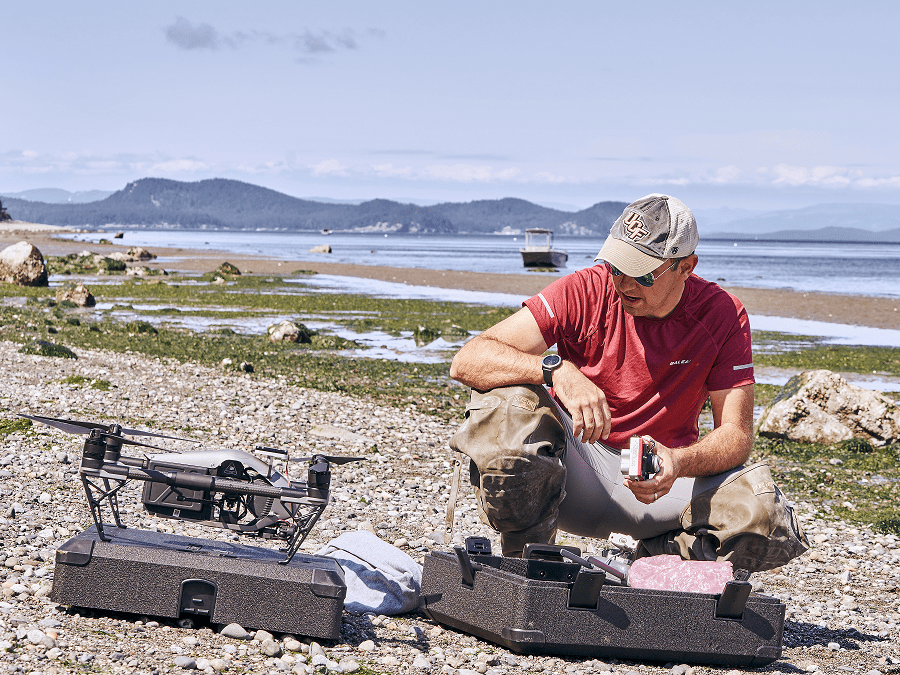Sociology Associate Professor Named National Geographic Explorer

Credit: Tyler Copeland
Explorers still exist, even in a world where every has corner has a name.
Count Associate Professor Timothy Hawthorne, Ph.D., among their number. Hawthorne was recently named a 2022 National Geographic Explorer by the prestigious organization. The National Geographic Society describes its Explorers as “infinitely curious people who are passionate about our planet and making it a better place.”
It’s not literal exploring that takes up most of Hawthorne’s time, but inspiring wonder and curiosity in the next generation of explorers though projects like the newly launched and nation’s first GeoBus.
In many ways it’s a dream come true for Hawthorne, who grew up with a desire to explore the world.
“I don’t think a young Tim would believe I get to do the job I have today,” said Hawthorne, who leads Citizen Science GIS in the Department of Sociology. “The fact I get paid to go to Belize and the West Coast and do this research with community partners is mind blowing.”
While Hawthorne counts himself lucky, it’s granting others the opportunity to explore that truly ignites his passion. His work in Hopkins Village, Belize, is one example. Pre-pandemic, a team of UCF students and local community scientists joined Hawthorne in the coastal community to map flood risk with GIS and drones. That provides a critical tool for leaders to troubleshoot future problems and expand the infrastructure needed to support flood management. They also had the opportunity to train local children on mapping and drone activity.
The project highlights both of Hawthorne’s passions: inspiring the next generation of explorers and setting up communities with empowering tools, while allowing their knowledge to contribute to science. The decision to buy and use lower cost equipment is intentional, Hawthorne explained. While his budget allows for a $50,000 drone, teaching the next generation of GIS explorers on $200 drones “keeps it accessible for community organizations,” Hawthorne said.
“You can buy these drones at retail stores and basically use them right out of the box,” he said. “That keeps the science translatable.”
The National Geographic Society grant to support Hawthorne’s work totals $30,000, which he will apply to the nation’s first GeoBus. The bus is a traveling geospatial technology learning lab powered by solar energy that provides hands-on introductions to GIS mapping. That extra funding opens up more GeoBus visits to Title I schools at low or no cost and provides funded internship experiences for UCF students.
The broader reach of the award is what gets Hawthorne most excited.
“While it’s an individual recognition, it really speaks to the broader idea of connecting science and society,” he said. “Our research and education go beyond the walls of UCF.”
Click here to learn more about the GeoBus work supported by this National Geographic Society grant.
